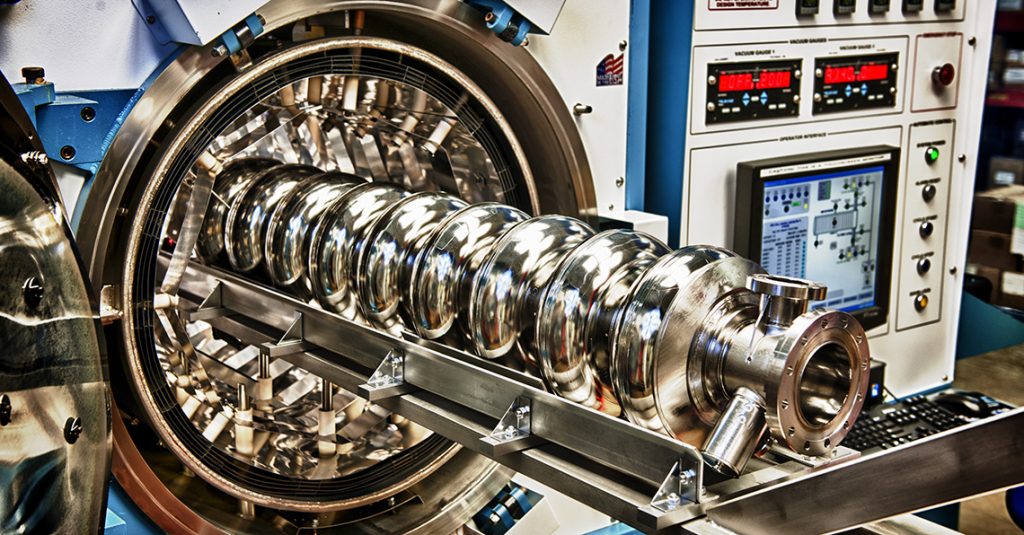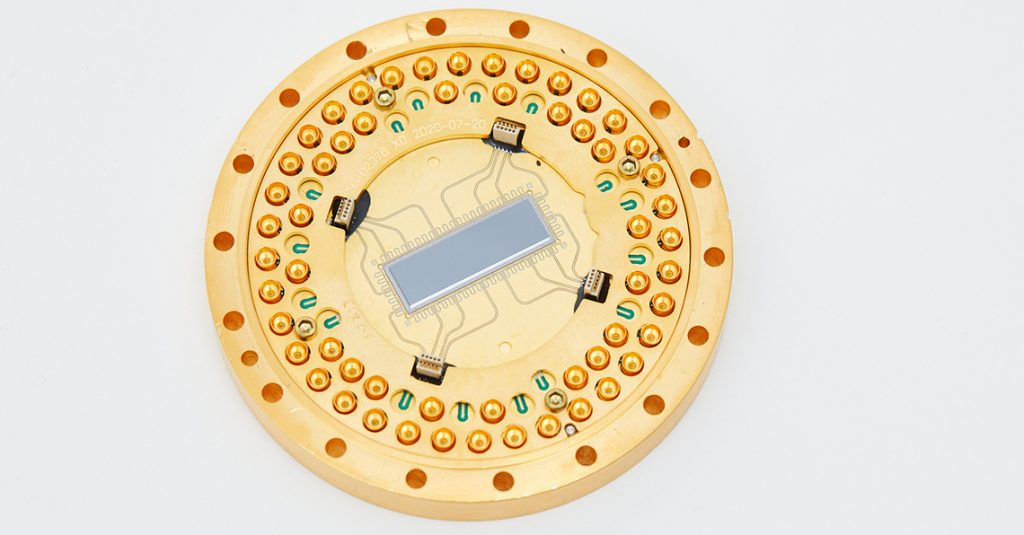Fermilab SQMS
IBM Plans to Advance Critical Quantum Information Science Initiatives in Collaboration with Fermilab’s SQMS Centre.
In order to extend quantum workforce development programmes and significantly advance crucial technologies and applications of superconducting quantum systems, IBM intends to join Fermilab’s SQMS Centre.
SQMS Meaning
The U.S. Department of Energy Office of Science, Science Programmes, has authorized IBM’s entry as a new partner in the Superconducting Quantum Materials and Systems Centre, a DOE National Quantum Information Science Research Centre, hosted by Fermilab. SQMS Centre is committed to developing key quantum technologies, with a focus on superconducting quantum systems, as a prominent national and worldwide research centre.
IBM is pioneering superconducting quantum computing. These two organizations hope to tackle major challenges in quantum computing, communication, and superconducting quantum platform use by working together.
Huge cryogenics
IBM and SQMS plan to collaborate on the development of technologies that are essential for the large-scale data centre scaling up of quantum computing. At Fermilab, SQMS is already putting forth innovative ideas for larger-scale, more efficient milli-Kelvin cryogenics. The largest dilution refrigerator in the world, dubbed “Colossus,” will house 3D superconducting radiofrequency (SRF)-based quantum computing and sensor devices.
IBM is going to supply useful data and guidelines to increase the reach of Colossus. Creating a large-scale cooling system based on LHe/N2 plants is one aspect of this, as it would be appropriate for IBM’s upcoming large-scale commercial quantum computing systems.
Superior and abundant quantum interconnects
High-density, high-quality quantum interconnects are being designed and prototyped by SQMS using 3D SRF platforms for quantum computing systems under development at Fermilab. These advancements can also be applied to the expansion of modular systems based on chips. With an emphasis on premium microwave cables, Fermilab and IBM want to investigate the viability and use of quantum links as a component of a commercial quantum system.
Noise reduction in processors and qubits
IBM and SQMS partners plan to collaborate as part of the SQMS Centre to advance scientific knowledge of the factors restricting the performance of superconducting qubits and to create workable solutions for “1/f flux noise” reduction.
SQMS Internship
Creation of quantum computing systems for scientific purposes
The research of physics-based applications of quantum computing systems is going to be furthered by IBM and SQMS partners. For instance, in condensed matter physics, scientists want to investigate how IBM’s utility-scale processors can facilitate a simulation of quantum many-body dynamics with a complexity that gets close to a quantum advantage regime. Partners will investigate lattice quantum field theory simulations for high-energy physics.
Programmes for quantum workforce development
SQMS Centre launched numerous successful workforce development programmes, such as the U.S. Quantum Information Science School, which is shared with the other four National Quantum Information Science Research Centres (NQISRC) sponsored by DOE, in order to recruit and train the future generation of a diverse quantum workforce. With its extensive quantum education programme, IBM has made quantum education possible for millions of students worldwide.
SQMS Quality
By giving Fortune 500 firms, colleges, labs, and startups within the IBM Quantum Network the resources they need to develop their quantum workforce, the programme has also contributed to the provision of industry and domain expertise. IBM and SQMS intend to collaborate in order to enhance national quantum workforce development initiatives.
“IBM need to solve and scale complex challenges, like efficient, large-scale refrigeration and high-density and low-loss quantum interconnects, and advance their understanding of noise sources and how to reduce them,” stated Jay Gambetta, IBM Fellow and Vice President, IBM Quantum. “They are accelerating towards building a large-scale, fault-tolerant quantum computer.”
The intended involvement in the research of the SQMS Centre is a cornerstone in advancing our strategy for large-scale quantum computing. Together with pushing the boundaries of quantum hardware, IBM and Fermilab hope to advance scientific uses of quantum computing and develop a workforce prepared for the future of quantum computing.
A legal agreement between IBM and Fermi Research Alliance, LLC must be approved before the collaboration can commence.
SQMS Standards
One of the five National Quantum Information Science Research Centres of the U.S. Department of Energy is Superconducting Quantum Materials and Systems(SQMS) Centre. Fermi National Accelerator Laboratory leads SQMS, a coalition of over thirty national labs, colleges, and corporations. It aims to revolutionize quantum information science.
Utilising cutting-edge qubits and superconducting technology, the centre designs multiqubit quantum processor platforms by drawing on Fermilab’s experience in creating intricate particle accelerators. SQMS Centre will construct new quantum sensors and a quantum computer at Fermilab in close collaboration with embedded industry partners, creating previously unheard-of computing possibilities.
SQMS Centre
A National Quantum Information Science Research Centre of the Department of Energy
In the direction of the quantum future
As part of a nationwide effort to create and implement the most potent quantum computers and sensors on the planet, the U.S. Department of Energy funds five research centres, including the Fermi National Accelerator Laboratory-led (Superconducting Quantum Materials and Systems) SQMS Centre.
In a mission-driven, multidisciplinary collaboration, SQMS brings together over 500 experts from 34 partner institutions, national laboratories, academia, and industry. This collaboration integrates deep expertise in a variety of fields, including quantum information science, material science, computational science, particle and condensed matter physics, cryogenics, microwave devices and controls engineering, industry applications, and more.
SQMS Quantum Undergraduate Internship
Superfine-Q SRF caverns
With its world-record quality-factor superconducting radio-frequency cavities, the SQMS Centre is investigating the use of these structures as building blocks for quantum computing platforms, which have the potential to scale and increase performance tenfold over the most advanced commercial platforms now available. They are also investigating quantum transducers and memories based on SRF.

Superconducting processors and qubits
SQMS’s goal is to significantly increase these devices’ performance. Collaborating closely with prominent figures in the quantum sector, we have established a nationwide task force focused on nanofabrication, utilising multiple research and production foundries. Their newly designed fabrication procedures have yielded consistent performance enhancements.
Comprehending quantum decoherence
SQMS researchers examine dissected cavities and qubits with different performance levels using a wide range of specialized material characterization techniques. By using these methods, researchers can improve the functionality of quantum devices by learning more about the atomic and nanoscale processes that restrict quantum coherence.
Benchmarking, simulations, and algorithms
Scholars are customizing algorithms to effectively handle data from the SQMS SRF QPUs, investigating the application of commercial quantum platforms, and comparing the computational capacities of various hardware. Applications include finance and MRI, as well as simulations of fundamental physics for high-energy and condensed-matter physics.
Fundamental physics through quantum sensing

The SQMS Centre‘s high-coherence gadgets, with their extreme sensitivity, open up new platforms that stretch into uncharted regimes. The main areas of research are tests of quantum mechanics, dark matter candidates, gravitational waves, particles beyond the Standard Model, measurements of fundamental properties at the precision frontier, and assessments of the benefits of quantum sensing systems in these experiments.
The quantum ecosystem
The next generation of researchers will be trained and educated by SQMS, which is building a community and a space to further the area of quantum information science. This is achieved by creating possibilities and utilising alliances across the diverse SQMS network in the Chicago region, Illinois as a whole, and beyond. The SQMS Centre wants everyone to have access to quantum information science.
Increasing milli-kelvin cryogenics’ scale
SQMS Centre is utilising Fermilab’s unique resources and cryogenics expertise to construct the largest and highest cooling power dilution refrigerator in the world. Additionally, engineers are creating vital technologies that will enable the scalability of future massive quantum computing data centres.

